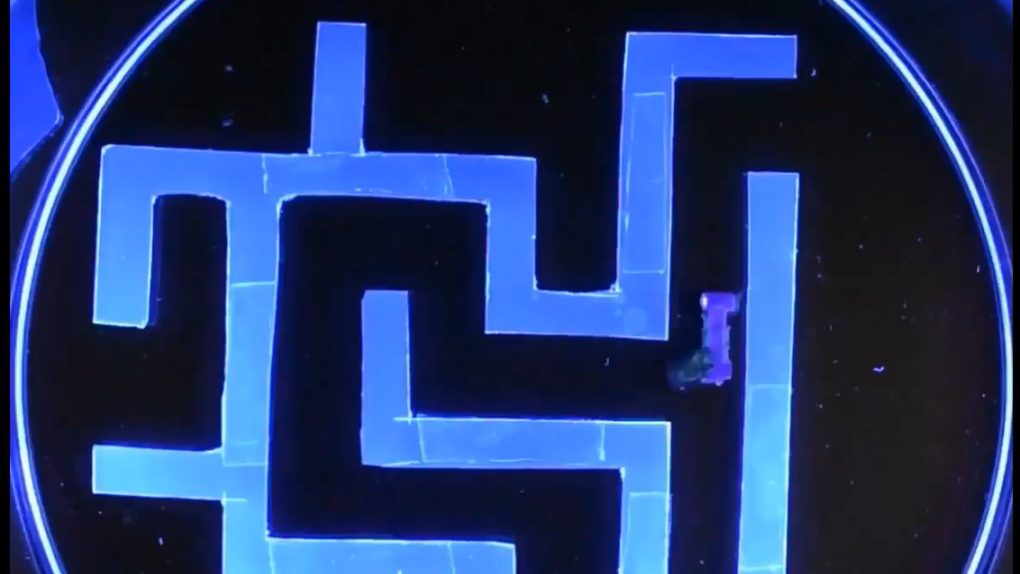Ont. researchers create plant-based micro-robots to help with medical procedures
A team of researchers at the University of Waterloo have created advanced materials that will become the foundation for a new era of soft medical micro-robots.
Chemical engineering professor Hamed Shahsavan is leading the way with these tiny robots, which have the potential to conduct medical procedures such as biopsies and cell and tissue transports in a minimally invasive way without the syringes or catheters usually needed.
For now, they're a maximum of one-centimetre long and here's the catch – they're plant-based.
In creating the devices, Shahsavan said the team asked themselves: “How can we shoot the surgeons inside the body?”
The answer involved making robots out of advanced hydrogel composites that include sustainable cellulose nanoparticles derived from plants.
“They are not toxic. They don't show any immune response or foreign body response,” Shahsavan said.
The robots can move through confined and flooded areas, like the human body, and deliver delicate and light cargo, like cells or tissues, to a target position.
Shahsavan says the hydrogel used in this work changes its shape when exposed to external chemical stimulation. That enables researchers to program shape-change.
Magnetism also helps movement of the robots through the body. Researchers moved the tiny robot through a maze, as an example, to show how it would maneuver inside the human body.
 A programmable soft robot navigates through a maze in a proof of concept. (Submitted/University of Waterloo)
A programmable soft robot navigates through a maze in a proof of concept. (Submitted/University of Waterloo)
“Expose them to electric magnetic field, or different temperatures or even acidity, alkalinity and then they change their shape. Instead of isotropically, same in all directions, they change their shape in a way we dictate it,” Shahsavan said.
Researchers can trigger a shape-change in the robots essentially at will – making them curl or twist, prompting them to pick things up and drop them off.
“It's not going to replace your open heart surgery but it's going to cover many grounds that could be covered non-invasively,” Shahsavan said.
The next step in this research is to scale the robot down to submillimetre scales.
Although the team believes we’re still about a decade off from seeing these type of device in our hospitals, it’s a big step towards more minimally invasive medical procedures.
You can learn more about the research here.
CTVNews.ca Top Stories

Trudeau's 2024: Did the PM become less popular this year?
Justin Trudeau’s numbers have been relatively steady this calendar year, but they've also been at their worst, according to tracking data from CTV News pollster Nik Nanos.
Back on air: John Vennavally-Rao on reclaiming his career while living with cancer
'In February, there was a time when I thought my career as a TV reporter was over,' CTV News reporter and anchor John Vennavally-Rao writes.
Death toll in attack on Christmas market in Germany rises to 5 and more than 200 injured
Germans on Saturday mourned both the victims and their shaken sense of security after a Saudi doctor intentionally drove into a Christmas market teeming with holiday shoppers, killing at least five people, including a small child, and wounding at least 200 others.
Overheated immigration system needed 'discipline' infusion: minister
An 'overheated' immigration system that admitted record numbers of newcomers to the country has harmed Canada's decades-old consensus on the benefits of immigration, Immigration Minister Marc Miller said, as he reflected on the changes in his department in a year-end interview.
Summer McIntosh makes guest appearance in 'The Nutcracker'
Summer McIntosh made a splash during her guest appearance in The National Ballet of Canada’s production of 'The Nutcracker.'
The winter solstice is here, the Northern Hemisphere's darkest day
The winter solstice is Saturday, bringing the shortest day and longest night of the year to the Northern Hemisphere — ideal conditions for holiday lights and warm blankets.
Warrants issued for 'violent offenders' after Nanaimo jewelry store robbery
Authorities are asking for the public 's help finding two suspects wanted in connection with a Nanaimo, B.C., jewelry store robbery earlier this year.
Wild boar hybrid identified near Fort Macleod, Alta.
Acting on information, an investigation by the Municipal District of Willow Creek's Agricultural Services Board (ASB) found a small population of wild boar hybrids being farmed near Fort Macleod.
Manhunt underway after woman, 23, allegedly kidnapped, found alive in river
A woman in her 20s who was possibly abducted by her ex is in hospital after the car she was in plunged into the Richelieu River.

































